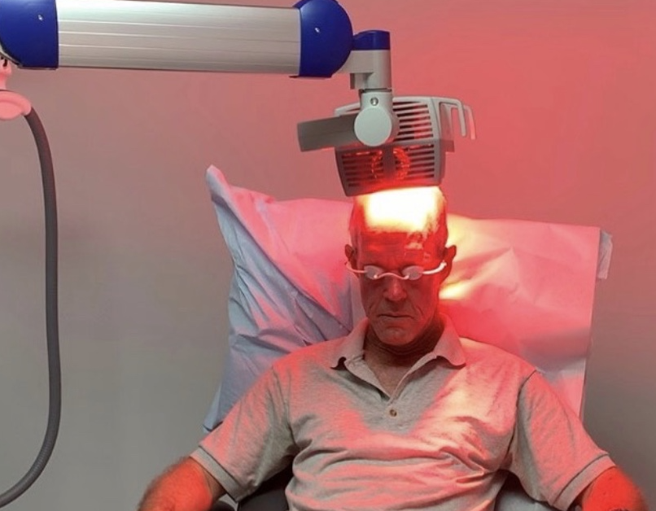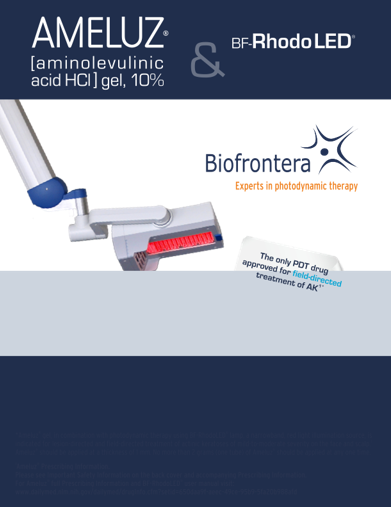Photodynamic Therapy with BF-RhodoLED and AMELUZ
Photodynamic therapy(PDT) is an effective, non invasive, irradiation free light therapy to treat actinic keratoses(AK), performed by a health care provider.
In principle, it uses light and a photosensitizing gel or solution. A preferred sensitizing substance is aminolevulinic acid (ALA), a naturally occurring precursor of a photoactive substance called protoporphyrin IX(PpIX)
Once inside the cell, ALA is converted into PpIX by a series of enzymatic reactions. PpIX is activated by light in the presence of oxygen, resulting in the elimination of AK cells. PpIX is primarily formed by premalignant cells, leaving healthy skin cells mostly intact.
AMELUZ (aminolevulinic acid hydrochloride) gel 10% is a porphyrin precursor, in combination with photodynamic therapy using BF-RhodoLED lamp, is used for lesion directed and field directed treatment of actinic keratoses of mild to moderate severity on the face and scalp.


Actinic Keratoses(AK) are premalignant lesions of the skin that, when left untreated can potentially develop into skin cancer. The primary cause for AK is chronic sun damage and approximately 58,000,000 Americans are currently affected.1
There are different stages of AK, ranging from mild to severe, being more or less scaly and varying from normal skin color to reddish or brown.
AKs often occur as multiple lesion on skin areas frequently exposed to the sun, eg: the face, scalp, neck, ears, and hands.
Actinic Keratosis (AK) is the most frequent precancer. It can potentially develop into squamous cell carcinoma (SCC), the second most common skin cancer, which can become life threatening if untreated and may require surgery.2
Approximately 10% of AK lesions will progress to SCC 3, and a retrospective study with over 6,000 patients found that the average time of progression is two years.4
Therefore, treating AK during the early stages is a safe and effective way of reducing the risk of AK progression to skin cancer.
- The Lewin Group. The burden of skin diseases 2005. The Society for Investigative Dermatology and the American Academy of Dermatology Association.
- Siegel et al. Br. J. Dermatol.2016 Aug 8
- Glogau, J. Am. Acad.Dermatol 2000: 42:23-4
- Fuchs, Marmur, Dermatol. Surg. 2007 Sep; 33(9): 1099-101

